– Why we partnered Jaiz Bank to introduce Hajj Savings Scheme
– How we intend to handle aborted 2020, 2021 and prospective 2022 pilgrimage
+ ‘What I do with my wife first every morning, before I sleep’
This did not, however, incapacitate the commission’s chairman as he continues to carry out other businesses relating to Hajj and Umrah operations. More importantly, the former Executive Secretary of Osun State Muslims Pilgrims Board (between 2010 and 2013) has introduced series of brilliant initiatives and reforms that keep the Hajj House in Abuja running for close to two years.
In this Interview with Muslim News’ Rasheed Abubakar and Labeebah Dhikrullah, Alhaji Zikrullah highlighted the initiatives and their benefits to the Hajj operators as well as the prospective pilgrims.
MN: By February 2022, it will be two years since you resumed as the Chairman, can you tell us some of the reforms or initiatives you have introduced into the Commission?
Alh. Zikrullah: Let me first welcome you to the Hajj House. This is the house that coordinates the affairs of Hajj in Nigeria. We are the ones with the mandate to regulate Hajj and Umrah, as well as other businesses in relation to Hajj and Umrah in Saudi Arabia.
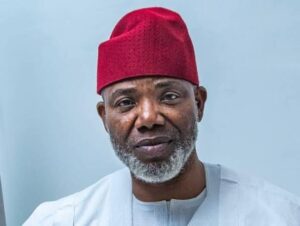
As it is public knowledge, for almost two years, we have lost the opportunity of performing Hajj and that has impacted somewhat on us because Hajj is our primary mandate. That almost ought to have made us jobless. But when we came in, the board of which I chair was of the view that there are many other initiatives that we need to do with or without Hajj operations. We immediately embarked on them and irrespective of the fact that the whole world was not moving, we didn’t wait.
The first initiative was that of the Hajj Savings Scheme. Last year, September 10, we signed an agreement with Jaiz Bank, and I must tell you the wisdom behind this is that we know that as an organisation which is devoted to servicing Muslims, we have a responsibility to partner with a bank that is halal (lawful). And that explains precisely why we had to do some partnership with Jaiz Bank. We started the Hajj Savings Scheme; it was in the Act. We won’t do anything without being in the cover of the law. So, it was in the Act, but we felt that in our time, we will make it come to life. We succeeded, alhamdulilah. We still wish to do better, but at least we have started, which was a reform as you want to call it. But like I said, it was already in the Act, but we made it to come to life.
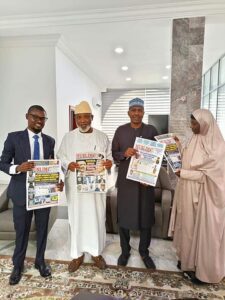
In doing so, we actually persuaded all the relevant stakeholders. We spoke with the governors in most parts of Nigeria. We had interactions with most prominent Emirs in Nigeria, including the Sultan of Sokoto. We met all other stakeholders, Muslim communities and Muslim leaders of thought without a single exception. All were ready to support. That also gave us the courage to go on with it. So, it’s something we’ve tried to carry Nigerians along.
Then, again, we realised the fact that Hajj has become a multi-billion industry and there’s no such industry that does not need professionalism. That was why we also decided to establish a training institute for the younger minds who may want to be involved in Hajj management. In so doing, we intend to be the institute to train Hajj managers in any English speaking country in the world. Just like our savings scheme, no country has such in Africa. That training institute has no such in the world. Our goal will be when finally established and thinking of the future, we’ll be the training institute for any new entrant into Hajj management anywhere in the English speaking world. That is why the syllabus has been made to be as wide as possible. When we say Hajj management today, it involves so much. It involves finance, knowledge of IT, knowledge of management. But we believe that when people are properly trained, the pilgrims will be better for it.
Part of what we are also focusing on is to agree that we are in the digital age. Anybody who wants to survive in this world cannot afford to be manual in their operations. More so, we are dealing with Saudi Arabia and they are going digital by the day; moving forward by the day. We felt that since they are the main holders of the Hajj operations, we must be able to cope. So, that’s why we have ventured into trying to totally transform digitally our operations. We haven’t gotten to the peak yet, but at least, we have already started the automation of accounts department. As we speak, in the next few months, some of our zonal branches will also be linked to the internet with us. We expect that in the next few months, all our operations will be digital. That’s part of our goals.
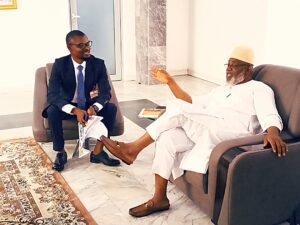
We equally realised that whether we like it or not, government, even, if it wants to, will not be able to financially support Hajj operations for the masses. And in so doing, there’s a need to always look inward. For us therefore, we have embarked on what is called Public Private Partnership (PPP) with private investors to look at some of our landed properties which have almost become wasted properties. Like our Hajj camps. After the Hajj, traditionally, they are closed until another one year when Hajj comes. So, we have started the initiative to turn that 30 days a year occupation to a 24/7 occupation. We have already started; in the next few days, we’ll be taking the initiative to the Federal Executive Council (FEC) for approval. This is required by the law for PPP. So, these are some of the initiatives.
Of course, the staff welfare is key. First time in the history of our organization, we should be opening a clinic for the staff before the end of the year. These are some of the things we are trying to do.
MN: Can you update us about the Jaiz Bank/NAHCON Hajj Savings scheme? What are the reports you have received so far? Has it been launched in all the 36 states?
Alh. Zikrullah: There’s no restriction to the Hajj Savings Scheme. But by the geography of Nigeria, there are places where Islam has a stronghold. There are places where the Muslims are more in population, which means the pilgrims will be more. In Northwest, Northeast, North central as well as Southwest are places where we have greater patronage of subscribers. In the South south and Southeast, we are struggling, but we are not dormant. When we signed with Jaiz Bank, we actually launched the Hajj Savings Scheme in the six go-political zones; Ebonyi in the Southeast and Benin in the Southsouth. In Lagos for Southwest, Kano for Northwest, Bauchi for Northeast, North central, we were at Ilorin. Then, our Hajj Savings Scheme team went to all other states to also ensure that there is presence. But like I did say, where the Muslim population is in abundance and where the pilgrims are usually more, the acceptance has been high. That, we understand.
The idea of the Hajj Savings Scheme is actually to assist the needy. We think that it ought not to be the responsibility of the government to give people free Hajj. Go to Hajj, like Allah says, if you can afford it. We have started that. I cannot tell the exact number of subscribers now, but what I can tell you is that the subscribers are all over the country and the rate is rising by the day. As a matter of fact, our plan would include that very soon, pilgrims will have to go through the Hajj Savings Scheme if they want to eventually be in Saudi Arabia.
MN: Let’s talk about missing the 2020, 2021 Hajj operations due to the COVID-19 pandemic. How does it affect the activities and plans of the Commission?
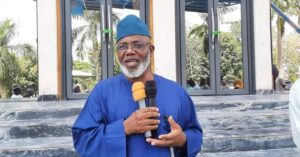
Alh. Zikrullah: Well, it affected the plans of the commission just the way the whole world has been affected. Governance was affected; social life was affected. It did affect our plans. It did affect our project. It did affect our strategy. But, what can we do since we are not an island, the whole world is engulfed in the entire scenario. We just take it as Muslims and we are focused on doing other things which I have told you. Since we didn’t go to Hajj, we had enough time to exert our energy into many of these new initiatives. We are hoping that there will be Hajj in 2022 and of course in 2023 as well. The challenge, however, is that there are a number of people on ground, now possibly much more than the allocation we are expecting. We are already devising strategy to combat this, but essentially, that should be along first come first serve pattern.
MN: How will you cater for the two cases of those who missed the last two Hajj and considering the prospective pilgrims for 2022? Would you accommodate all or the last two alone? Can all of them be accommodated?
Alh. Zikrullah: Well, some of it are still now in the realm of speculation. For instance, I don’t know how many number we are going to get. That, I cannot say. We used to get something in the region of a hundred thousand. Now, with this COVID-19 protocol, I still don’t know what number we are getting. When we get that number, it is at that time we will be able to strategize on how to best to allocate the numbers. But we will be very just.
MN: It is almost 2 years you became the chairman of NAHCON, how has it been, being the man in charge?
Alh. Zikrullah: I have been a Muslim activist all my life. This assignment is just like a fraction of what I’ve been doing.
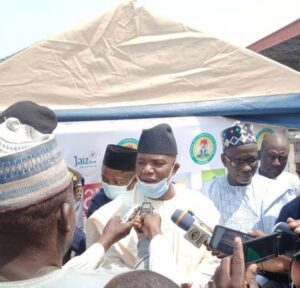
MN: How does being the Chairman affect your daily dealings, especially your personal life, considering that you had to relocate to Abuja?
Alh. Zikrullah: I have been almost like a professional immigrant. I was in Osun for eight years. From Osun, I went back to Lagos. Before I knew it, I find myself in Abuja. For me, it’s not something new at all. When I was in Osun, my family never stayed with me for a number of reasons. My wife is very busy in Lagos. But she visits me and I visit her. I do video call with my wife first thing in the morning and another one before I sleep. With that, I see my wife everyday (smiles).
MN: How will you describe the relationship that exists between NAHCON and other states as well as private operators?
Alh. Zikrullah: We are the regulator. So the private Hajj operators cannot go to Hajj without being licensed. If we did not license a state agency, it cannot go to Hajj because in Saudi Arabia, it’s only the Hajj Commission that is known. No state is recognized in the Kingdom of Saudi Arabia. But as to relationship, for now and insha Allah for the future, we have very good relationship. We are partners, not competitors. We are okay together.



